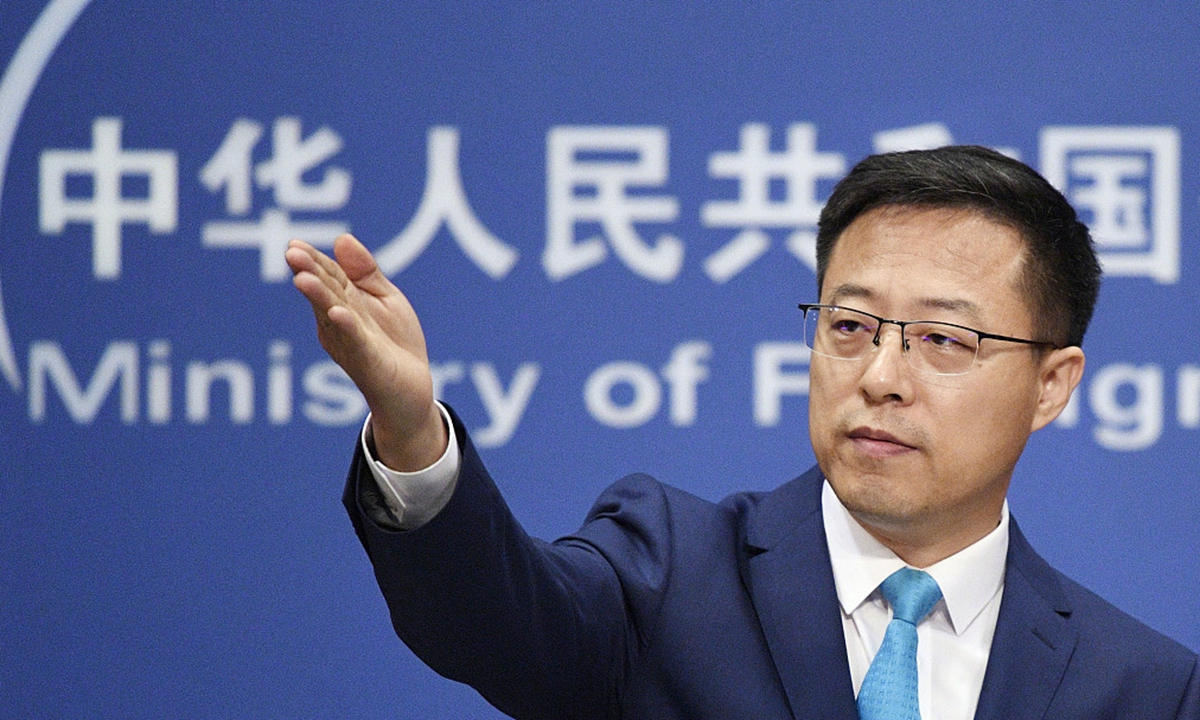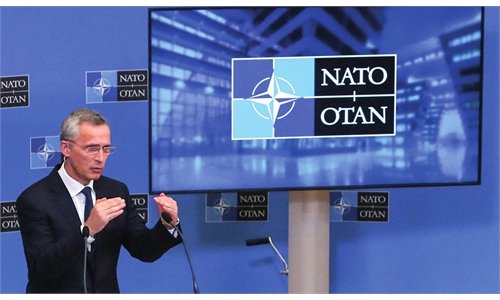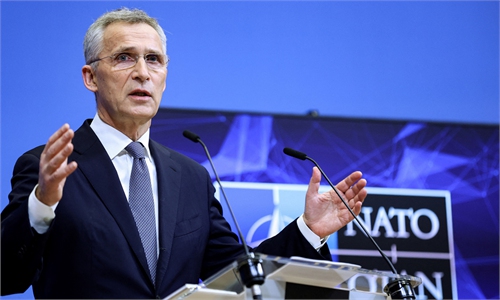China’s Foreign Ministry blasts NATO for setting up ‘gang’ rules, meddling in others’ affairs

Zhao Lijian Photo: VCG
It is not in the rights of NATO to act beyond its authority and seek breakthroughs by establishing its own “gang” rules, China’s Foreign Ministry said on Wednesday.
“As a regional defensive alliance, NATO should strictly observe its geographical scope,” Zhao Lijian, a spokesperson for the ministry, told a press conference in Beijing.
NATO has extended its tentacles deeper and wider after the Cold War. It has not only expanded to cyberspace and space, which should have been dealt with by the United Nations and specialized international agencies, into the scope of the collective defense of its member states, but also increased its meddling in a wide range of civil areas such as climate change, infrastructure, supply chain, health and energy, Zhao said.
His remarks came after NATO chief Jens Stoltenberg, during a visit to Spain, warned about “growing Chinese efforts to control” critical infrastructure, supply chains and key industrial sectors. Stoltenberg also said Western countries must be careful not to create “new dependencies on China” as they are weaning themselves off Russian energy supplies amid the conflict between Russia and Ukraine, according to a Reuters report on Monday.
“The formation and development of global industrial chain and supply chain is the result of joint action of market laws and corporate choices. Over recent years, China has carried out sound and equal cooperation with countries and enterprises in various regions, including NATO member states, in related fields, which has greatly benefited people on both sides,” Zhao said.
It is not the first time for the NATO chief to hype so-called “China control” narrative after NATO described China as a “challenge” to the military alliance’s “interests, security and values” in its new strategic concept in June. China is labeled for the first time as a “systemic challenge” in the Strategic Concept, its once-in-a-decade set of priorities and goals, at the Madrid summit in June.
“China pursues an independent foreign policy of peace. It does not interfere in other countries' internal affairs or export ideology, still less engage in long-arm jurisdiction, economic coercion or unilateral sanctions. How could China be labeled a ‘systemic challenge’?" Zhao asked.
Global Times


